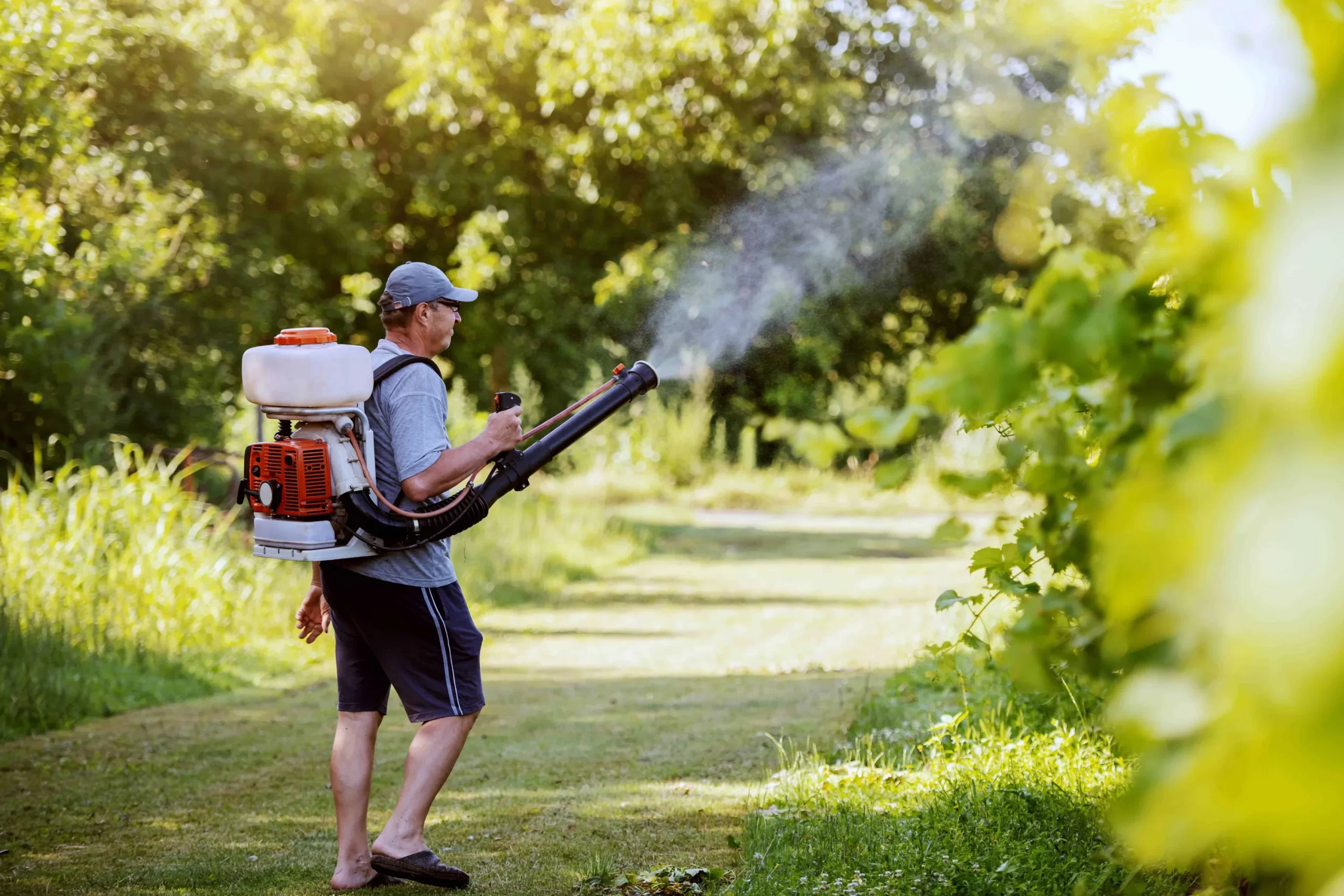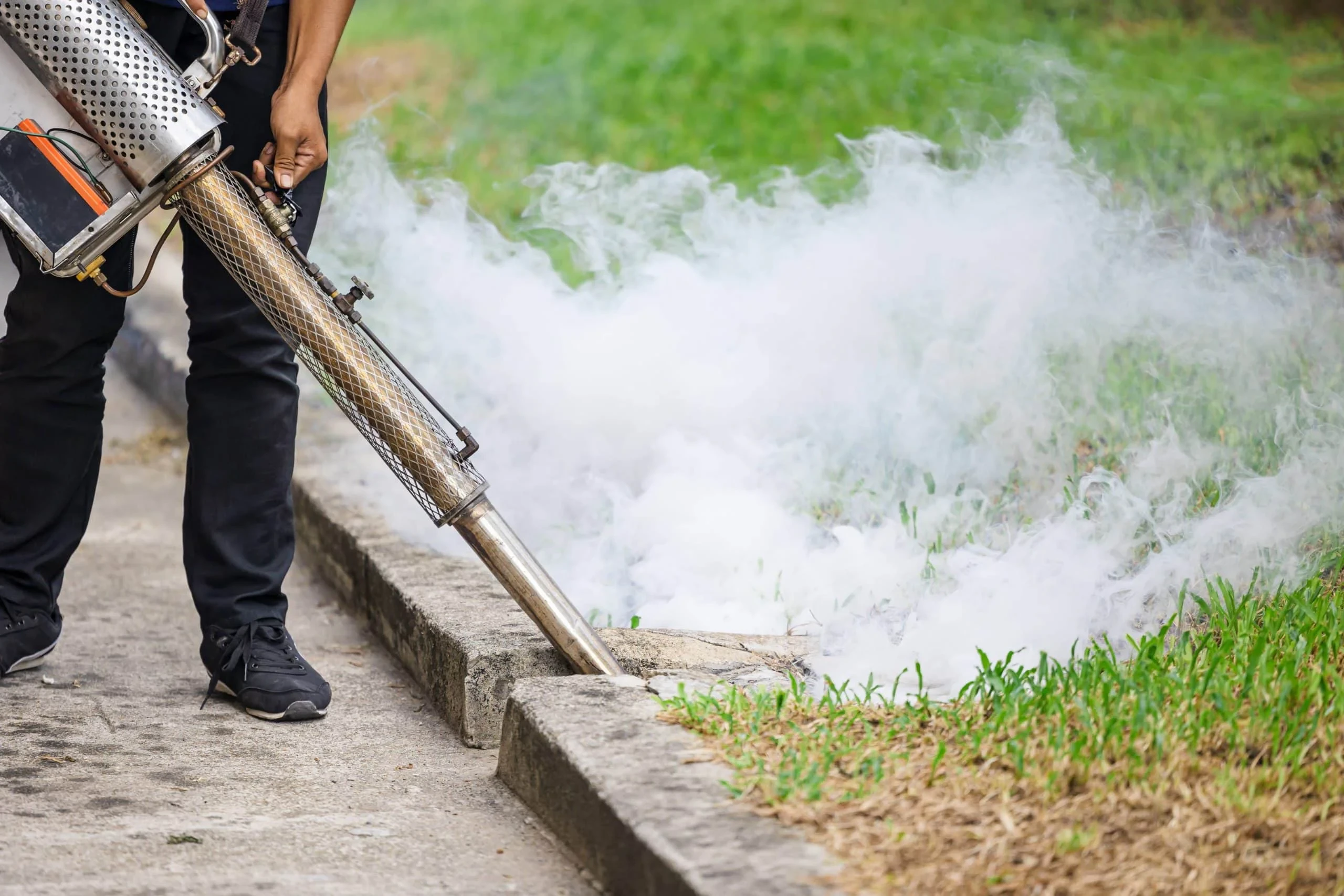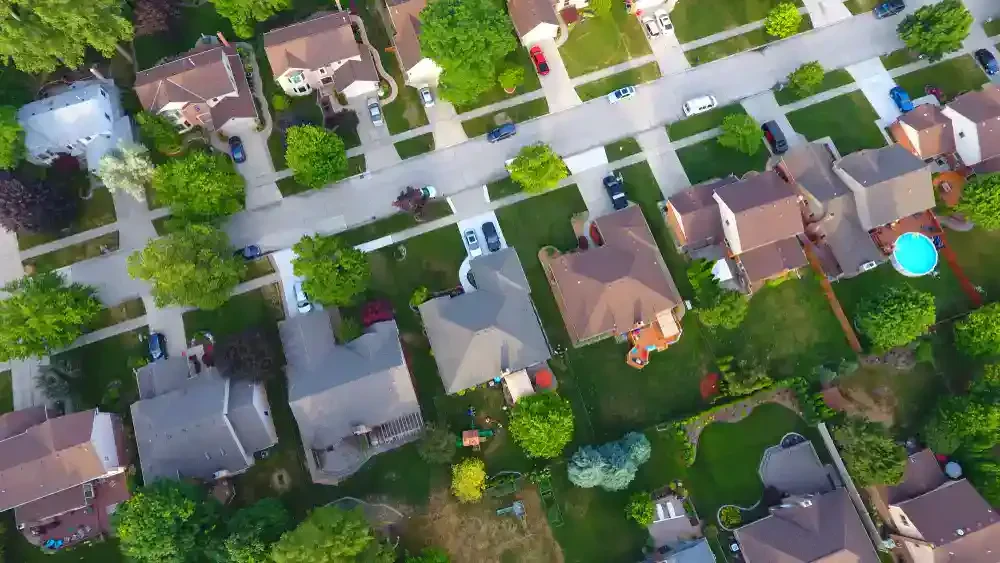Discover proven methods to control garden pests safely while protecting your plants, pets, and beneficial insects in your Michigan garden.
Share:

Summary:
Pet-safe pest control isn’t about settling for weaker solutions—it’s about choosing smarter ones. These methods target harmful pests while protecting your dogs, cats, and the beneficial insects your garden needs to thrive.
The most effective approach combines natural deterrents with strategic garden management. Instead of trying to eliminate every bug in sight, you’re creating an environment where beneficial insects can control pest populations naturally. This balance keeps your garden healthy without exposing your pets to harmful chemicals.
Michigan gardens face unique challenges, from Japanese beetles to cucumber beetles, but natural solutions can handle these common threats when applied correctly.

Neem oil ranks as one of the most effective natural pest control solutions available. This plant-derived oil disrupts the life cycle of soft-bodied pests like aphids and spider mites without harming pets, birds, or beneficial insects like bees and butterflies. Mix two tablespoons of neem oil with one tablespoon of mild dish soap in a gallon of water, and you’ve got a powerful spray that breaks down naturally in sunlight.
Diatomaceous earth offers another pet-safe option for controlling crawling pests. This fine powder made from fossilized algae dehydrates slugs, snails, and beetles on contact but won’t hurt your pets if they walk through treated areas. Always use food-grade diatomaceous earth and apply it when winds are calm to avoid respiratory irritation.
Essential oil sprays create aromatic barriers that pests hate but pets can tolerate. Peppermint oil mixed with water repels ants and aphids, while lavender oil deters moths and mosquitoes—especially important in Michigan where mosquitoes can carry West Nile virus. These natural solutions smell pleasant to humans and break down quickly without leaving toxic residues.
Simple soap sprays work surprisingly well against soft-bodied insects. Mix a few drops of mild liquid soap with water in a spray bottle, and you can knock aphids right off your plants. The soap disrupts their protective coating, causing them to dehydrate quickly. This method works fast and rinses away with the next rain.
Smart plant choices can turn your entire garden into a pest-repelling fortress. Companion planting uses the natural properties of certain plants to create zones of protection around your vegetables and flowers, working 24/7 without any effort from you.
Marigolds earn their reputation as pest-fighting powerhouses. Their pungent scent repels aphids, whiteflies, and various beetles that commonly attack Michigan gardens. Plant them around tomatoes, peppers, and other vulnerable crops, or create colorful borders that serve double duty as pest barriers and pollinator magnets.
Herbs offer some of the best pest protection while giving you fresh ingredients for cooking. Basil planted near tomatoes doesn’t just improve tomato flavor—it actively repels flies, mosquitoes, and tomato hornworms. Mint keeps ants and rodents away, though you’ll want to plant it in containers since it spreads aggressively.
Lavender deserves a spot in every Michigan garden for its mosquito and tick-repelling properties. With Eastern equine encephalitis and Lyme disease concerns in our area, natural mosquito and tick deterrents become even more valuable. Plus, lavender’s purple blooms attract beneficial insects that prey on garden pests.
Chrysanthemums contain natural pyrethrin, a compound that repels and kills many common garden pests including beetles, spider mites, and ticks. Unlike synthetic versions, natural pyrethrin breaks down quickly in sunlight and won’t accumulate in soil or pose long-term risks to pets and wildlife.
Want live answers?
Connect with a First Choice Pest Control expert for fast, friendly support.
Natural methods work well for prevention and minor pest problems, but sometimes you need professional backup. Knowing when to call for help can save your garden and prevent small problems from becoming major infestations.
Professional pest control becomes necessary when pest populations exceed what natural methods can handle, when you’re dealing with multiple pest species simultaneously, or when pests are causing significant damage despite your best efforts.
The key is finding pest control services that specialize in pet-safe, environmentally responsible methods rather than companies that rely solely on chemical treatments.

Integrated Pest Management represents the most advanced approach to professional pest control, combining biological, cultural, and targeted chemical controls to create comprehensive protection while minimizing risks to pets and beneficial insects.
We start with thorough inspection and identification. We don’t just look for pests—we identify beneficial insects that should be protected, assess environmental conditions that might be attracting pests, and evaluate the overall health of your garden ecosystem. This comprehensive assessment ensures treatments target the right problems with appropriate solutions.
The treatment phase uses multiple strategies in carefully planned sequences. Beneficial insects might be introduced to establish natural pest control. Cultural modifications like improving drainage or adjusting plant spacing eliminate conditions that attract pests. When chemical intervention becomes necessary, we choose the most targeted, least toxic options available.
Monitoring and follow-up separate professional IPM from basic pest control services. Regular inspections track pest populations, evaluate treatment effectiveness, and catch emerging problems before they become serious. This ongoing relationship means your pest control strategy evolves with your garden’s changing needs.
Professional IPM services also educate homeowners about maintaining healthy garden ecosystems. You’ll learn to recognize beneficial insects, identify early signs of pest problems, and understand when professional intervention is necessary versus when natural methods will handle the situation.
Choosing the right pest control service for your garden requires more than just comparing prices. You need professionals who understand both effective pest management and pet safety, with specific experience in Michigan’s unique pest challenges.
Look for companies that emphasize integrated pest management and can clearly explain their pet-safe protocols. We readily discuss our methods, provide specific guidelines for keeping pets safe during and after treatments, and demonstrate knowledge of pet-safe products and application techniques. Any hesitation to discuss pet safety should be a red flag.
Local expertise matters tremendously in garden pest control. Michigan gardens face specific seasonal challenges—Japanese beetle invasions in summer, overwintering pests in spring, and beneficial insect populations that need protection. Companies with local experience understand these patterns and can time treatments for maximum effectiveness with minimal environmental impact.
Certifications in integrated pest management, organic methods, or sustainable agriculture indicate a company’s commitment to environmentally responsible practices. These credentials suggest technicians receive ongoing training in the latest pet-safe and eco-friendly pest control methods.
Consider the company’s approach to customer relationships and education. The best services don’t just treat current problems—we help you maintain a healthy garden ecosystem between visits, provide ongoing support for natural pest prevention, and adjust strategies based on your garden’s changing needs throughout the seasons.
Experience with both residential pest control and garden ecosystems proves crucial. Indoor pest control and garden pest management require different approaches, and companies that understand this distinction can provide more effective, targeted solutions that protect your garden without disrupting its natural balance.
Creating a thriving garden that’s safe for your pets doesn’t require choosing between effective pest control and family safety. Natural methods like companion planting, essential oil barriers, and beneficial insect conservation provide sustainable protection that improves over time.
When natural approaches need professional reinforcement, integrated pest management offers targeted solutions that work with your garden’s ecosystem. The most successful approach combines consistent natural prevention with professional expertise when needed.
Remember that healthy pest control focuses on balance, not elimination. Your garden needs some insects to feed the beneficial species that provide natural pest control. For personalized guidance on creating this balance in your Swartz Creek garden, we combine over 20 years of local experience with pet-safe, integrated pest management solutions.
Article details:
Share: